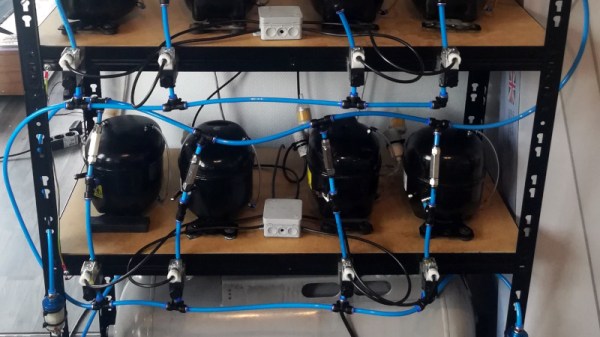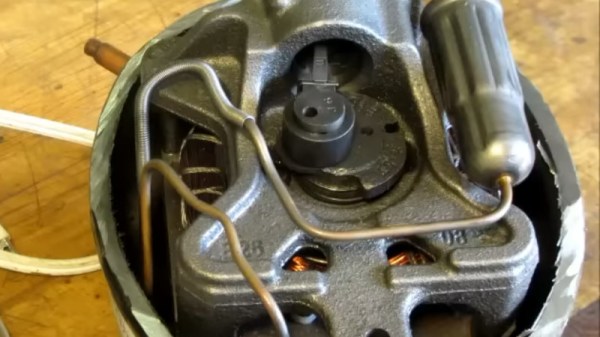Having compressed air available in a workshop can be extremely useful. Having a compressor isn’t such a pleasure though, because unless it’s a very expensive model, it will be one of the noisier devices you own. Other than putting your compressor outside, is there a solution to the noisy side of having an air line? [Dominik Meffert] may have found one for his CNC plasma cutter in the shape of a rack of much quieter fridge compressors arranged in parallel with an air tank.
Of course, there’s nothing new about using a fridge compressor in the workshop. Indeed, such units are even commercially available as compressors for low-capacity tasks such as airbrushing. But we’ve never seen so many at once. It’s not entirely apparent how he’s handling the replacement of any lubricating oil that’s being caught in his filters, and we hope the refrigerant was disposed of safely, but we can see he’s on to something.
Fridge compressors have appeared here many times over the years, for more than compressing, we’ve even seen one as an engine. They aren’t always as strongly built as they should be though.












